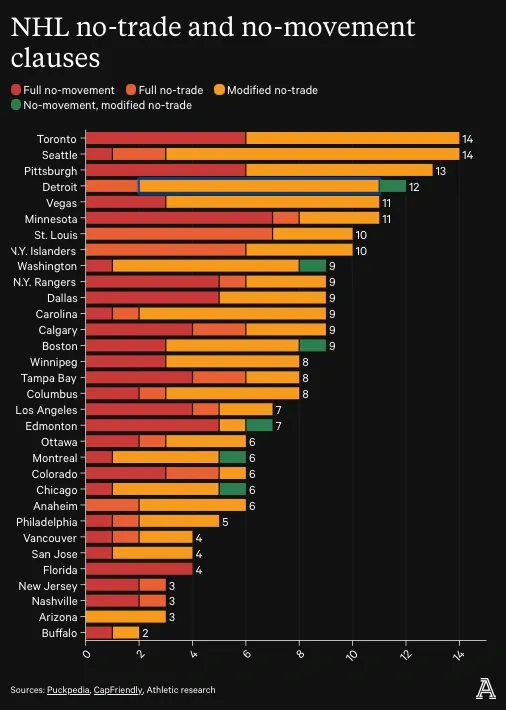Modified No-Trade Clause
The CBA addresses no-trade clauses in a sort of funny way.
The general rule is found in Section 1 of Article XXIV (titled “Prohibition of No-Trade Contracts”):
"No Player Contract may contain any prohibition or limitation of an NBA Team’s right to assign such Contract to another NBA Team."
That is, as a general rule, no-trade clauses are not allowed. Section 2 of Article XXIV goes on to list some exceptions to this general rule.
The first exception allows for the inclusion of a trade bonus in a player contract, subject to certain limitations. This makes sense in this section because it is certainly at least a limitation of an NBA Team’s right to assign the contract to another NBA Team.
The second exception allows for the following:
"A Player Contract entered into by a player who has eight (8) or more Years of Service in the NBA and who has rendered four (4) or more Years of Service for the Team entering into such Contract may contain a prohibition or limitation of such Team’s right to trade such Contract to another NBA Team."
This is the exception that the common use of a no-trade clause falls under. A player satisfies the service criteria and their contract may contain a prohibition or limitation of the Team’s right to trade the player. The common practice is for this prohibition or limitation to be absolute. That is, the player has the right to veto any trade without their consent. For this reason, no-trade clauses are very rarely granted and typically reserved for players with a great amount of leverage.
However, it is not clear that some other type of no-trade clause structure would be impermissible. For example, under the plain text of the rule, a player contract might be able to limit the team’s right to trade the contract to certain teams (i.e., Player is prohibited to be traded to teams X, Y, or Z, without Player’s consent). This structure would certainly be less of a prohibition and limitation than the traditional no-trade clause is.
It seems plausible that there would be a market for such a clause. It is certainly possible some players would be open to being freely traded but for certain markets they don’t wish to live in, franchises they don’t wish to play for, or some other personal preference. It is also certainly possible that some players would exchange some amount of money for this benefit — creating a market on the team side for differentiation in contract negotiation.
This has proven common in NHL contracts, where players may have a “modified no-trade clause” that is limited to some list of teams the player does not want to be traded to, updated yearly. Essentially, it says “Player cannot be traded to Team X, Y, or Z, without player’s consent.” Here’s a visual, as of Spring 2024, showing the popularity of these clauses:

In a system where max contracts are determined by scale, and where salary allocation is becoming increasingly critical, teams will need to differentiate offers in some non-monetary ways. A modified no-trade seems like a pretty interesting way to do that.
Of course, it is not clear that the NBA league office would be receptive of this interpretation and/or use of the no-trade clause. It seems possible that the NBA would not want players putting lists of undesirable locations in writing (which would also eventually become public). It is perhaps an avenue worth exploring with the league office nevertheless.
It would be an interesting innovation on a relatively long-standing practice and a creative interpretation of a rule. Though, as my law school contracts professor often said, “A creative interpretation of a rule is only as good as the arbiter’s breakfast that morning.”
